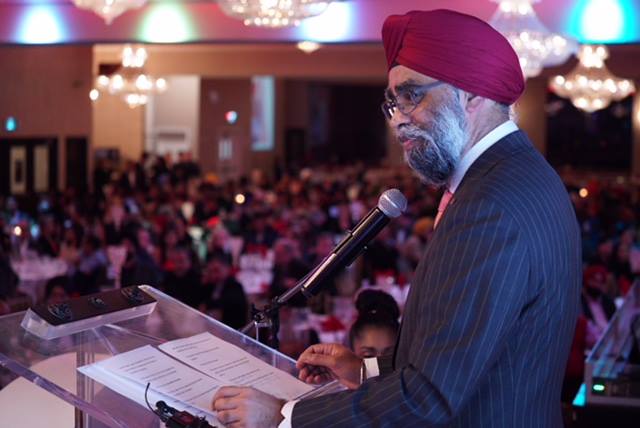
OTTAWA — Defence Minister Harjit Sajjan is expected to announce Thursday the long-awaited deployment of a promised Canadian Forces transport plane to Uganda for peacekeeping missions.
The CC-130 Hercules was one of three signature promises Prime Minister Justin Trudeau made to the United Nations when Canada hosted a major peacekeeping summit in November 2017, only one of which has been fulfilled.
The federal government last year deployed a unit of helicopters and several hundred military personnel to help with medical evacuations in Mali. That mission is to wrap up at the end of this month.
Trudeau also promised a 200-strong “quick reaction force” to the UN, but Canada has yet to register the force in a UN database of peacekeeping pledges, which means it has not been formally offered.
UN and Defence Department sources told The Canadian Press last month that an agreement was being finalized on deploying the transport plane to the UN’s logistics hub in Entebbe to help ferry supplies and troops around Africa.
That followed a report by The Canadian Press earlier this year that the UN was pushing back against restrictions Canada wanted to put on when and where the plane could be used.
Those included a stipulation the plane only fly in daylight and only between Entebbe and five locations that, according to one UN official, either didn’t have any peacekeeping units or were easily accessible by road.
Sajjan’s office had refused to comment on the UN’s concerns at the time and insisted both sides were intent on reaching an agreement.
The federal Liberals campaigned in the last election on a promise to renew Canada’s commitment and role in peacekeeping in a major way, but have since been accused of not living up to the spirit of that pledge.
The government insists it is committed to peacekeeping, as evidenced by its decision to extend the mission in Mali by one month — which only came after a great deal of pressure from the UN and some of Canada’s allies.